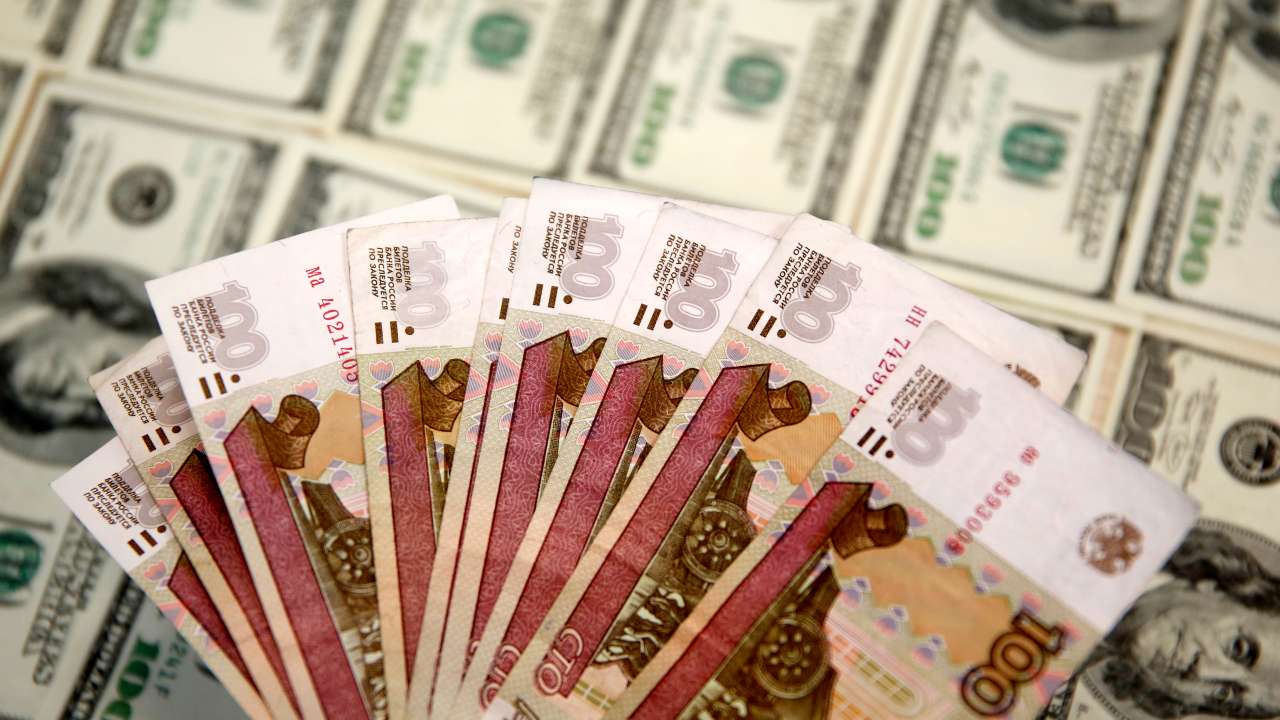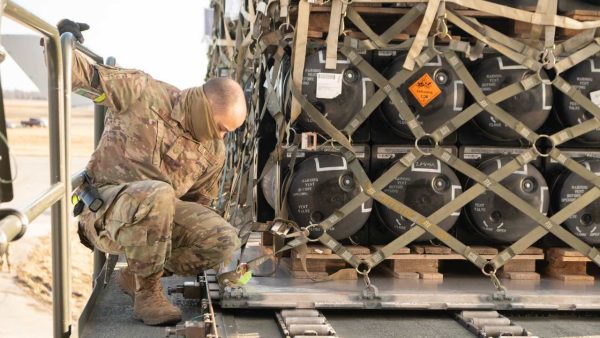The victory of Kremlin-friendly Robert Fico in Slovakia, strengthening Europe’s awkward squad on Ukraine, and then Kevin McCarthy’s October 3 ousting as speaker of the US House of Representatives, have laid bare the vulnerability of the West’s current taxpayer-funded model for supporting Ukraine.
While the necessity of supporting Ukraine, at all costs, should be obvious to all (it’s the best long-term investment the West can make in its own defense against an expansionist Russia), it is a hard sell to electorates. Why should we be spending hundreds of billions of taxpayer dollars on Ukraine while there is a cost of living crisis at home?
Indeed, as the McCarthy and Fico experiences should tell us, plowing on with a taxpayer model of Ukraine funding risks an ever greater populist backlash at home, which could do untold damage to liberal market democracy, which surely Ukraine’s fight is all about.
Perhaps we just need to better explain the imperative of backing Ukraine. That Russia’s victory in Ukraine would put a victorious aggressor slap-bang next to NATO’s borders, give a green light for further Russian expansion, and a similar signal to China over Taiwan.
But also, it would risk the economic and social collapse of Ukraine, which would flood Europe with multiple millions of additional refugees from the conflict. It would also be naïve to think the disintegration of Ukraine would not result in arms leaking across the European Union’s (EU’s) borders. The longer-term costs will be still larger. The collective West would have failed.
But there is another way of doing this — we can make Putin pay. Even the populists would struggle to argue with that. The West holds $400bn of Russian assets, either frozen or immobilized (for comparison, all Western aid so far, including financial, humanitarian, and military, totals about $350bn.)
Western governments have presented us with lame excuses as to why these cannot be used. These vary from the supposed risk to the principle of sovereign immunity, the risk of tit-for-tat appropriation of Western assets in Russia, and the dollar’s position as a reserve currency.
These are weak arguments.
The sovereign immunity argument has been debunked in a recent paper by the diplomat and academic Philip Zelikow and others, which shows that a state only has the right to sovereign immunity if it abides by international law. And Russia clearly is not.
Russia has already legislated to shakedown Western firms as they leave and to give the “Russian state priority rights to buy any Western asset for sale at a ‘significant discount’ so they could later be sold at a profit.”
The dollar’s position as a reserve currency would no longer be undermined by the move to seize Russian assets for use in Ukraine, as has already been by the freezing of these assets. Authoritarian regimes will have already got the message and will have moved assets accordingly.
In other words, all three horses have already bolted.
There is another hard question that must be asked — should Western national security interests take a back seat to Western businesses that ultimately made a disastrously bad call by investing in Russia?
Of course, no one should discount the seriousness of these decisions, and we must all acknowledge the implications for issues including the rule of law. But laws can and should be changed when national security is at stake.
If we fail to adequately and fairly finance Ukraine, we risk not only that country’s defeat but a political and populist backlash in our own countries.
This author pointed out last year that the United States is currently defeating a major strategic adversary — and close ally of China — and paying peanuts to do so. If the US, and its democratic allies, don’t have the moral strength for this fight, they at least have an obligation to consider the alternatives. That vast pile of assets sitting in Western bank vaults is an option that must be used.
Consider the alternative. Imagine the lunacy whereby Western taxpayers have committed multiple billions of their own money to aiding Ukraine’s victory and reconstruction, only to see it lose and then watch their governments handing back the money; turning over the $400bn to a state characterized by kleptomania, mass murder, and imperial conquest.
Does anyone imagine that the funds won’t be used to rebuild the military and threaten us again?
Maybe we should include a note in the envelope with the check and a note asking, “What more can we do to help you Mr. Putin?”
Timothy Ash is a Senior Emerging Markets Sovereign Strategist at RBC BlueBay Asset Management. He is an Associate Fellow at Chatham House on their Russia and Eurasian program.
The opinions in this article are those of the author.
Europe’s Edge is CEPA’s online journal covering critical topics on the foreign policy docket across Europe and North America. All opinions are those of the author and do not necessarily represent the position or views of the institutions they represent or the Center for European Policy Analysis.





